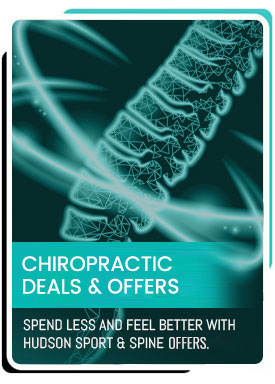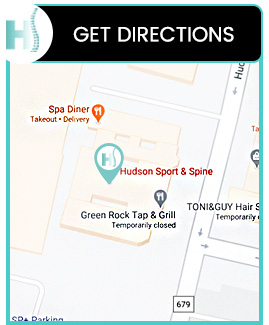Frozen Shoulder Treatment Specialist in Hoboken, NJ
Hudson Sport & Spine offers specialized care for frozen shoulder with customized treatment plans designed to reduce pain and improve shoulder mobility. Dr. Todd Givens, DC, and his expert team provide advanced therapies to restore range of motion and enhance your quality of life. Whether you’re experiencing stiffness, discomfort, or limited arm movement, our personalized care can help you recover. Contact us today or schedule an online appointment for professional frozen shoulder treatment. We are conveniently located at 70 Hudson Street, Suite 2B, Hoboken, New Jersey 07030.




Table of Contents:
What is a frozen shoulder caused by?
What are the stages of frozen shoulder?
How do you fix frozen shoulder?
What not to do with frozen shoulder?
Frozen shoulder, also known as adhesive capsulitis, occurs when the shoulder joint becomes stiff and painful due to inflammation and thickening of the shoulder capsule. The shoulder capsule is a connective tissue surrounding the ball-and-socket joint, providing stability and range of motion. In a frozen shoulder, this tissue thickens and tightens, restricting movement and causing pain. The exact cause of this condition isn’t always clear, but it often develops after periods of immobility, such as following an injury or surgery, when the shoulder remains unused for extended periods.
Several risk factors can contribute to the development of a frozen shoulder. Medical conditions like diabetes, heart disease, and thyroid disorders are linked to a higher likelihood of experiencing a frozen shoulder, as they can affect joint health and tissue flexibility. Hormonal changes, particularly in women around menopause, also increase the risk, suggesting a possible hormonal influence on the joint’s connective tissues. Additionally, a history of shoulder injuries, fractures, or surgeries that limit arm movement can trigger the condition.
At Hudson Sport & Spine, we understand how debilitating frozen shoulder, or adhesive capsulitis, can be for our patients. This condition is characterized by increasing stiffness and pain in the shoulder joint, progressing through three distinct stages over the course of one to three years.
1. Freezing Stage (Painful Phase): Duration: Six weeks to nine months. During this initial phase, pain gradually increases, and shoulder stiffness begins to develop. Management often focuses on controlling pain and preventing further loss of movement. Pain relief strategies may include physical therapy, gentle stretching, heat or cold therapy, and modalities like ultrasound or electrical stimulation to reduce discomfort while maintaining as much range of motion as possible.
2. Frozen Stage (Stiff Phase): Duration: Four to twelve months. In this stage, shoulder stiffness becomes more pronounced, often limiting movement significantly. Treatment generally emphasizes maintaining shoulder function and preventing further stiffness. Physical therapy techniques, including guided stretching and mobility exercises, can help promote gradual improvements. Strengthening the surrounding muscles while avoiding overexertion is key to managing this phase effectively.
3. Thawing Stage (Recovery Phase): Duration: Six months to two years. The recovery phase involves a gradual return of shoulder mobility and a reduction in pain. Rehabilitation often includes progressive stretching and strengthening exercises tailored to the individual’s recovery pace. Consistent physical therapy and ongoing monitoring help ensure optimal recovery, while adjustments to treatment plans can address any lingering discomfort or stiffness.
At Hudson Sport & Spine, we understand how debilitating shoulder conditions can affect your daily life and athletic performance. Frozen shoulder, or adhesive capsulitis, is a common condition that can severely impact your range of motion and cause significant discomfort.
Frozen shoulder progresses through three key stages, each with distinct symptoms:
● Freezing Stage: Initial pain and stiffness set in, often making simple tasks like reaching overhead or behind your back challenging.
● Frozen Stage: Your shoulder joint may become increasingly stiff and painful, limiting your ability to move freely.
● Thawing Stage: Gradual relief of symptoms occurs, allowing for the restoration of flexibility and range of motion.
Diagnosing a frozen shoulder typically involves a comprehensive physical examination to assess shoulder movement and identify areas of tenderness or restriction. A healthcare provider may gently guide the arm through various motions to evaluate the degree of stiffness and pain. In some cases, imaging tests such as X-rays or MRI scans may be recommended to rule out other conditions, such as arthritis or rotator cuff injuries, and confirm a diagnosis.
● General Treatment Options for Frozen Shoulder: Treatment for frozen shoulder often focuses on relieving pain and restoring shoulder mobility through a combination of conservative therapies:
● Physical Therapy: Physical therapy is commonly used to improve shoulder flexibility and strength. A personalized exercise program may begin with gentle stretching and gradually progress to more advanced mobility exercises as the shoulder heals. Consistency with physical therapy is essential for optimal recovery.
● Pain Management: Over-the-counter pain relievers like ibuprofen or acetaminophen may help reduce inflammation and discomfort. These medications can be used alongside other treatments for better pain control.
● Heat and Cold Therapy: Alternating heat and cold applications can help reduce stiffness and soothe discomfort. Heat improves circulation and flexibility, while cold packs can minimize inflammation.
● Advanced Interventions: For more severe cases, interventions such as joint distension (fluid injection to stretch the joint) or shoulder manipulation under anesthesia may be recommended to improve mobility. Surgery is rarely necessary but may be considered if other treatments do not provide sufficient relief.
Recovering from frozen shoulder requires dedication, often taking up to two years. We emphasize the importance of adhering to your treatment plan and maintaining a positive outlook. Our healthcare professionals will work closely with you to craft a tailored recovery strategy, ensuring you regain full functionality and resume your active lifestyle.
At Hudson Sport & Spine, we emphasize the importance of balancing rest with movement. Our team of experienced physical therapists will guide you through tailored exercises designed to maintain mobility without exacerbating your condition. Avoid prolonged immobilization and engage in our supervised sessions to ensure safe and effective rehabilitation.
● Modify Activities for Healing: Our specialists will advise you on which movements to avoid, such as forceful rotation and heavy lifting, to prevent further irritation of inflamed tissues. We focus on educating you about safe movement patterns to facilitate healing while protecting your shoulder from additional strain.
● Prioritize Professional Guidance: Listening to your body is crucial, and our team is here to interpret those signals with you. If you experience significant pain, our professionals are readily available to assess your condition and adjust your treatment plan accordingly. Avoid self-treatment and rely on our expertise for safe, personalized care.
● Comprehensive Lifestyle Support: Our integrated approach includes lifestyle recommendations such as avoiding smoking and excessive alcohol consumption to promote optimal healing. We also offer guidance on maintaining a balanced sleep schedule to minimize stiffness and support recovery.
● Commitment to Structured Physical Therapy: Regular attendance at physical therapy sessions is paramount. Trust in our structured rehabilitation plans and follow your therapist’s instructions diligently for the best outcomes.
By collaborating with our skilled healthcare professionals at Hudson Sport & Spine, you can manage your frozen shoulder effectively and promote optimal recovery. Our commitment is to provide you with comprehensive, individualized care every step of the way.
If you’re dealing with frozen shoulder, you may be wondering how chiropractic care can help improve your mobility and reduce pain. Dr. Todd Givens, DC, at Hudson Sport & Spine offers a comprehensive, non-invasive treatment plan tailored specifically for frozen shoulder. This condition, characterized by stiffness and pain in the shoulder joint, often limits daily activities, making even simple movements challenging.
Dr. Givens utilizes a combination of chiropractic adjustments, soft tissue therapy, and stretching techniques to reduce inflammation, restore joint mobility, and relieve muscle tension around the shoulder. He works with each patient individually, taking into account their pain levels, physical condition, and goals for recovery. At Hudson Sport & Spine, the focus is on improving function and preventing future injuries. For more information, Contact us today or schedule an online appointment for personalized care. We are conveniently located at 70 Hudson Street, Suite 2B, Hoboken, New Jersey 07030. Come to Hudson Sport & Spine for comprehensive treatment. We serve patients from Hoboken NJ, Jersey City NJ, Weehawken NJ, West New York NJ, Guttenberg NJ, Secaucus NJ, Harrison NJ, Kearny NJ, Newark NJ, Belleville NJ, North Bergen NJ, and Lyndhurst NJ.
Check Out Our 5 Star Reviews









